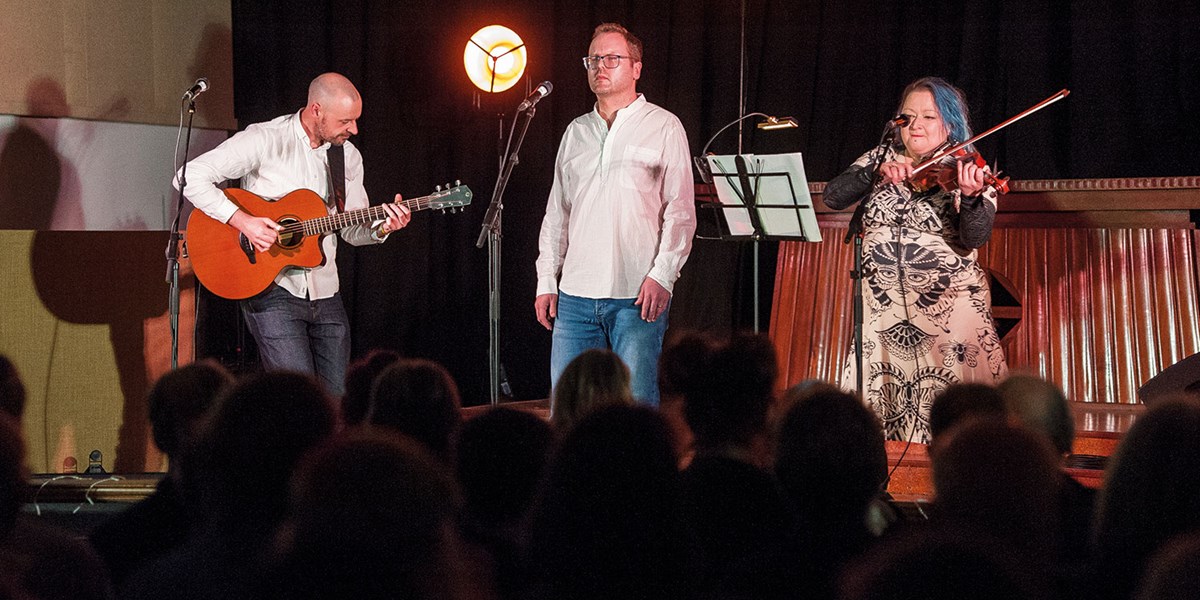Thursday, May 15, 2025
Peterloo remembered: Sean Cooney’s haunting folk chronicle of resistance and remembrance
By Dave McNally
A new play about the Peterloo massacre took centre stage at Manchester Folk Festival

L-R: Sam Carter, Sean Cooney and Eliza Carthy performing Peter’s Field (photo: Mike Ainscoe)

Register now to continue reading

Thanks for visiting the Songlines website, your guide to an extraordinary world of music and culture. Sign up for a free account now to enjoy:
- Free access to 2 subscriber-only articles and album reviews every month
- Unlimited access to our news and awards pages
- Our regular email newsletters

